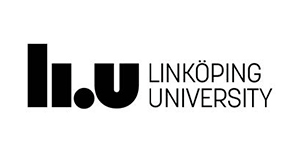LINKÖPINGS UNIVERSITET
Brief Description
In close collaboration with the business world and society, Linköping University (LiU) conducts world-leading, boundary-crossing research in diverse areas including sustainable development, materials science, information technology and digitalisation, and life sciences.
In the same spirit, the university offers many innovative educational programmes, many of them with a clear vocational focus, leading to qualification as, for example, organisational leaders, engineers, economists, doctors, and teachers.
As a sub-unit of the Department of Management and Engineering, The Division for Environmental Technology and Management (ETM) is an interdisciplinary research group with thirty yearsexperience of turning environmental problems into opportunities.
Our main focus is the transformation of organisations, technical systems and products and services towards a resource efficient society. Today the division is a research and education environment with international reputation and with 25 employees and 900 students.
Industrial and Urban Symbiosis (IUS) unit of ETM concentrates on long-term cooperation among local and regional actors that enable more productive utilisation of available resources that create business value, improve environmental performance, enhance innovation capacity and strengthen regional sustainability.
Our units main aim is to help scale up IUS practices in Sweden and globally by providing knowledge-based support to relevant stakeholders. Our research primarily focuses on development determinants, multiple impacts, and facilitation techniques of IUS.
Members of our unit have developed, coordinated, and contributed to numerous IUS development and research projects in Sweden and in Europe. We also develop and deliver educational programs on IUS for university students and for practitioners
Main tasks and responsibilities within the project
LiU will be mainly responsible for coordinating the activities focusing on the formulation, testing, refinement and promotion of organisational determinants that support successful emergence and development of symbiotic relationships (i.e. activities within WP4). Among others, these will include:



